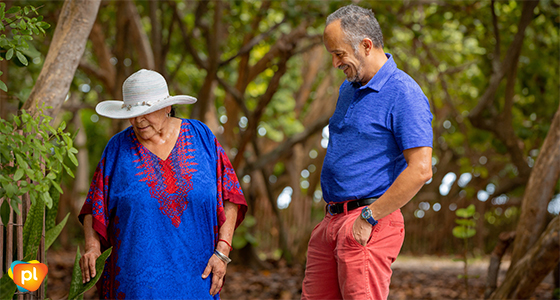
Did you know the first generation of people living with HIV are now ageing with HIV and over 60 years of age?
It’s an amazing achievement to think that through highly active anti-retroviral therapy (HAART) over 50% of people living with HIV in Australia are over the age of 55 – and one worth celebrating! We are not only surviving previous expectations of longevity, but we are facing the triumphs and challenges of age.
At the same time, while we can celebrate the fact we can enjoy a lifespan as long as anyone else, living with HIV and getting older means that we have a few more things to think about.
Biological and chronological age
There is evidence to suggest that our biological age is different to our chronological age.
Our chronological age is simply the determination of our age over time. When was your last birthday? That’s your chronological age. By contrast, our biological age is a determination of how genetic and epigenetic alteration affects our functional biological capacity over time.
Genetics is the study of our genes and DNA. Epigenetics is the study on how our behaviours and environment affect the way our genes work. It’s all quite complex but what’s important is to understand that our lifestyle and other factors can influence our biological age.
If you maintain a healthy lifestyle, then perhaps your chronological age and biological ages are close together. If you have a less healthy lifestyle, then perhaps your biological age is older than your chronological age.
Lifestyle factors and choices play a role in how we feel today and how healthy we are now, so now is as good a time as any to start paying attention to our health and lifestyle. The good news is that changing our lifestyle to adopt more healthy options means that we can start re-aligning our biological and chronological age and mitigate future health concerns.
What happens when we add HIV to all of this?
Based on studies published in 2014 and 2015, we know that the risk and prevalence of age-related health conditions (co-morbidities) is higher for people living with HIV. This is especially true for people who have not had access to treatment, been diagnosed late, or been severely immunocompromised.
Recently, the CO-morBidity in Relation to AIDS (COBRA) study in 2018 found that the biological age of people living with HIV was greater than people without HIV, and that people living with HIV displayed ‘greater age advancement’ and experienced ‘accentuated ageing’.
What can I do to reduce the impact of ageing with HIV?
Diet, exercise, taking our medication and importantly, looking after our mental health all play an active role in how healthy we feel.
Some ways to reduce the impact of ageing with HIV includes things like exercising for at least 30 minutes a day, eating a calorie-aware nutritious diet, being kind to ourselves, practice mindfulness and speaking with a mental health professional are some excellent starting points. Quitting smoking, reducing our drug and alcohol intake, and being more active throughout the whole day are also options as well. Always talk to your doctor about any health-related changes you want to make.
If you would like to know more about the COBRA study, you can email us at contact@positivelife.org.au or search for “COBRA co-morbidity study” and select the top result. It’s a dense read. We’re also happy to provide you with more information either directly to through these blog posts.
If you would like to speak with a Peer Navigator about adopting a more healthy lifestyle or any of the information that is contained in this article, please get in touch by calling (02) 8357 8386 or freecall 1800 245 677, or email contact@positivelife.org.au






